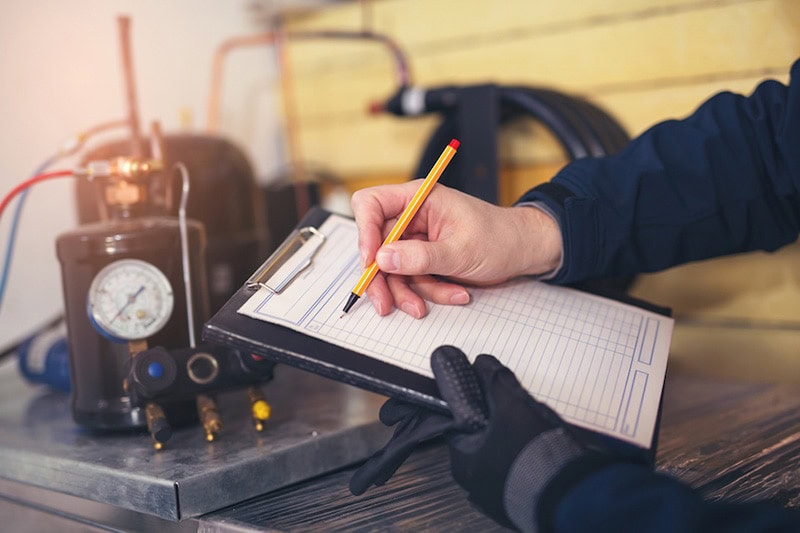Mythbusters: The Bigger the HVAC System, the Better

While variable-capacity HVAC technology was introduced to the U.S. over 30 years ago and is very common abroad, many consumers in the U.S. are still unfamiliar with heat pump technology and are still untrusting of its capabilities. With that mindset, there’s a lot of “myths” about these systems that we’re setting out to debunk!
Myth: The Bigger the HVAC System, the Better
The Truth:
Bigger does not always mean better, especially with HVAC systems. When it comes to specifying a mechanical system for a home, a system that’s too large (in both capacity and footprint) can lead to a lot of headaches, discomfort and undue burden on your wallet, as well as a shortened lifespan for your system!
You may be thinking, “How can this be? Wouldn’t a larger HVAC system just heat and cool my house better and faster? What’s so bad about that?” Trust us, you aren’t alone in that thought, but the phrase “bigger and better” doesn’t apply here.
On-Off Cycling
First, let’s cover the basics of “oversized capacity.” Capacity is the amount of heating and cooling a system provides. The “load” is the amount of heating and cooling a space needs to be comfortable. To condition your home, your HVAC system turns on full-blast then runs until it reaches your set point, or preferred temperature. An oversized system might warm up your home in minutes but it’ll shut off as soon as your desired temperature is reached. Then, once the temperatures start to drop because the system is no longer running, it starts up again. This cycle is called short cycling, and it can really put wear and tear on your system. Starting and stopping is energy-intensive, so short cycling is also wasteful when it comes to energy consumption and utility bills. Additionally, the constant on/off cycling can cause uncomfortable drafts
Mitsubishi Electric Zoned Comfort Solutions® systems use INVERTER-driven compressors to heat and cool efficiently. Instead of cycling on and off frequently, the compressors run constantly and ramp up or down based on the needs of each room. For even greater efficiency, the zone-by-zone control means units can be shut off in certain rooms or areas of the home that are used infrequently. This increased efficiency means cost savings for you.
Whether conventional or variable-capacity, a system with too large of a capacity will heat or cool more powerfully than is necessary and cause short cycling. A variable-capacity system still has a range. You’re going to have performance issues if your heat pump’s lowest capacity is still too much for a space’s load. To get the best from Zoned Comfort Solutions, work with a Diamond Contractor® who’ll make sure you get a correctly-sized system.
Big Performance from Small Footprints
While your HVAC contractor makes the calls when it comes to capacity sizing, the “bigger is better” misconception among homeowners also comes into play with the physical size of the equipment. Big, powerful outdoor units are sure to be better for conditioning a home, right? Wrong.
Our Zoned Comfort Solutions use streamlined, sleek, small-footprint designs to heat and cool homes efficiently. In fact, our narrow outdoor units fit closely to exterior walls and free up space for landscaping. Indoors, our EZ FIT™ Recessed Ceiling Cassette fits discreetly into ceiling joists while giving homeowners the reliable, powerful performance they expect from bigger units.
Call Vailes Home Improvement Services today to learn more about our energy-efficient heat pump options!
This blog was originally published on https://mehvac-blog.com/mythbusters-bigger-hvac-system-better/

